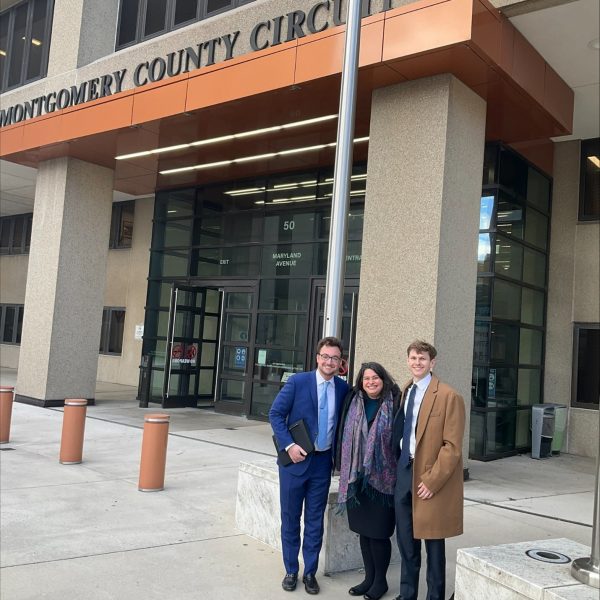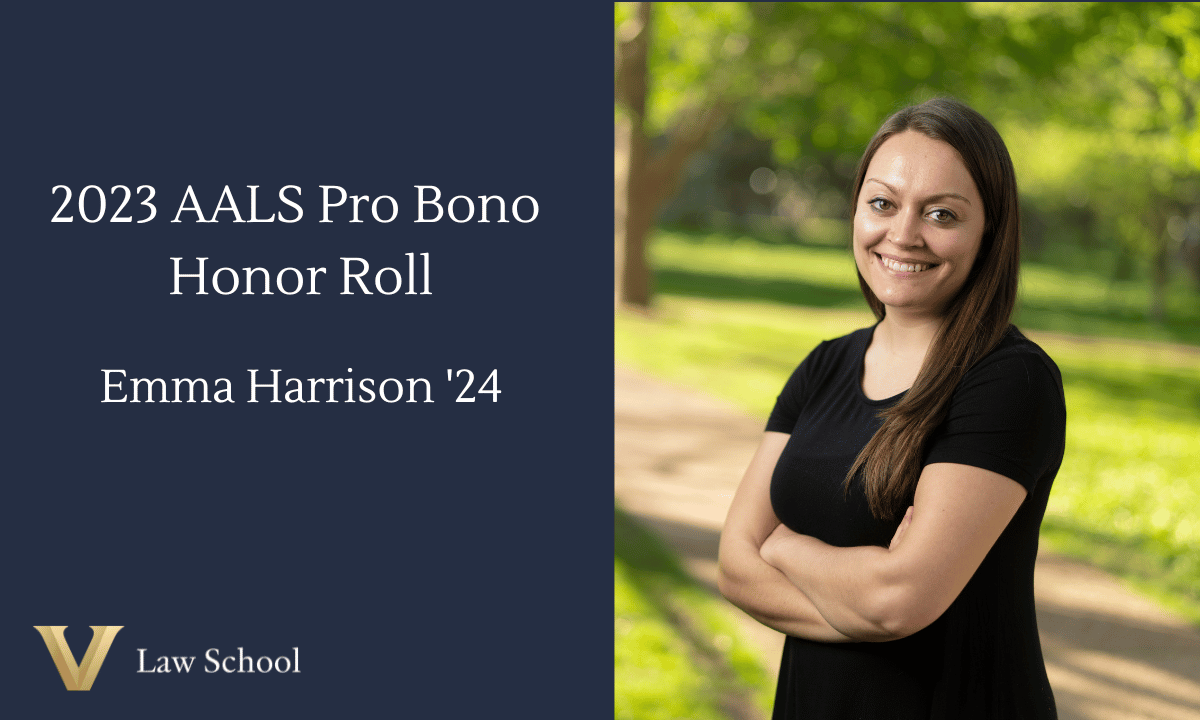Vanderbilt Law School’s Stanton Foundation First Amendment Clinic, in collaboration with the Baltimore Action Legal Team (BALT), represented their client, a Maryland resident who requested the disciplinary records of a Montgomery County police officer, in a hearing before the Montgomery County Circuit Court. On January 10, 2024, two First Amendment Clinic students, Samuel Carey ’24 and Jared Bauman ’24, traveled to Rockville, Maryland, to argue two crucial motions in a case that challenges efforts to obscure police misconduct records, a key test of Maryland’s commitment to transparency under Anton’s Law.
 Anton’s Law, passed in the wake of Anton Black’s tragic death in police custody, marked a turning point for police transparency in Maryland. Passed by the state Legislature in 2021, the law mandates the disclosure of police misconduct records. Despite this change in the law, Montgomery County officials and the Fraternal Order of Police (FOP) entered into an agreement allowing pre-release review of records by the FOP, which led to the current litigation, Doe v. Montgomery County.
Anton’s Law, passed in the wake of Anton Black’s tragic death in police custody, marked a turning point for police transparency in Maryland. Passed by the state Legislature in 2021, the law mandates the disclosure of police misconduct records. Despite this change in the law, Montgomery County officials and the Fraternal Order of Police (FOP) entered into an agreement allowing pre-release review of records by the FOP, which led to the current litigation, Doe v. Montgomery County.
The hearing, which focused on motions regarding the scope of redactions to the disputed documents and the officer’s use of a Doe pseudonym, highlighted the plaintiffs’ attempts to obscure information already in the public domain, including the identity of the officer involved. In their arguments, Mr. Carey and Mr. Bauman challenged these tactics, emphasizing the vital importance of transparency in the legal process. Their arguments reinforced the necessity for openness in legal proceedings and the importance of upholding the right to receive information, and they underscored the broader implications for law enforcement accountability and the public’s right to open judicial proceedings.
“This case is not just about one request or one set of records; it’s a matter of principle and public interest,” said Mr. Carey. “Anton’s Law was enacted to bring misconduct to light, not to provide new means to shield it.”
“The actions of Montgomery and Baltimore Counties set a worrying trend,” Mr. Bauman added. “The goal of the litigation is to ensure that Anton’s Law is upheld and the public’s right to information is not curtailed by backdoor agreements.”
The case, now a beacon for police accountability and transparency in Maryland, has drawn national attention, including coverage by The Washington Post. “It’s a fight against the pattern of secrecy that allows misconduct to thrive,” said Alexa Renehan, the records requester who is represented by the Clinic. “This isn’t just my battle; it’s a battle for every Maryland citizen who demands accountability from those sworn to protect us.”
The case’s resolution will not only set a precedent for the application of Anton’s Law, but the court’s decision on the questions raised at the hearing will impact the public’s ability to access crucial information leading up to the case’s resolution. Vanderbilt Law School’s First Amendment Clinic eagerly awaits the court’s decision and remains committed to advancing these vital principles, which are foundational to a just and informed society.
—————————————————————
Vanderbilt Law School’s Stanton Foundation First Amendment Clinic is a nonprofit, nonpartisan legal clinic that focuses on the speech, press, and assembly rights of individuals and organizations.
Baltimore Action Legal Team (BALT) is dedicated to politically conscious lawyering and to using creative, collective solutions to support the Movement for Black Lives in Baltimore.
For media inquiries, please contact: Jennifer Safstrom, Stanton First Amendment Clinic, Jennifer.Safstrom@Vanderbilt.edu


